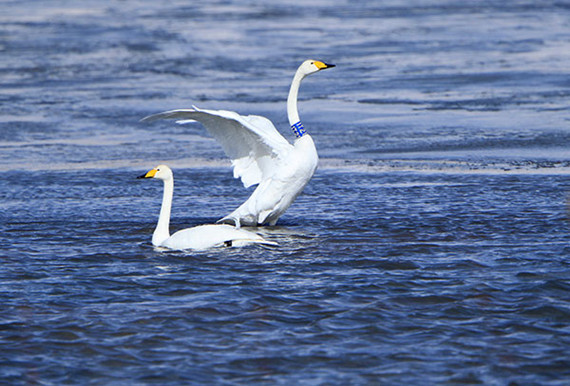
Conservationists are calling for more efforts to be made to protect wildlife habitats.
They want mandatory provisions to be included in a revised draft of the Law on Protection of Wildlife, along with support measures.
The revised draft was presented to the Standing Committee of the National People's Congress for deliberation on Dec 21.
After the deliberation, the NPC posted a notice on its website seeking public opinions on the draft, and the consultation period ended on Friday.
It is the first time that the law has been revised since it took effect on March 1, 1989.
Yi Lan, deputy head of the Forest and Ocean Unit at Greenpeace East Asia, said it is the first time that habitat protection has been addressed by the law, marking huge progress in safeguarding China's wildlife.
"The loss and fragmentation of wildlife habitats are the direct, or even the most important reason, behind wildlife extinction," Yi said.
"However, the articles (in the draft) relating to habitat protection are not focused and not strong enough. There should be a separate chapter dealing with habitat delineation, management and related legal responsibilities."
WWF China has offered many suggestions relating to habitat protection. The organization said that habitat areas not only refer to areas where wildlife species live, but also to migration areas.
It said there should be regular investigations, evaluations and monitoring of habitat status organized by governments, with specific time requirements — such as evaluations being carried out every 10 years.
"If the revised law doesn't specify a time requirement, then there is a high possibility that it will not be enforced," the organization said.
Yi said that habitat protection in the revised law still focuses on habitats within nature reserves. "However, the fact is that many habitats do not fall within these reserves.
"Take the giant panda for example. Only 66.8 percent of its habitat is within the nature reserve network," Yi said.
"Without proper protection from the law, those areas outside reserves risk being sabotaged."
Zhang Boju, director of Friends of Nature in Beijing, a nonprofit organization, said that even nature reserves are facing commercial development issues.
Zhang said one of the articles in the draft, which covers economic development and construction affecting wildlife and its habitats, should include a requirement that the effect of such work should be assessed.
There should also be a provision involving a recovery plan for any damage caused to wildlife and habitats before a project is started, according to Zhang.
Gao Tianpei contributed to the story.


















































